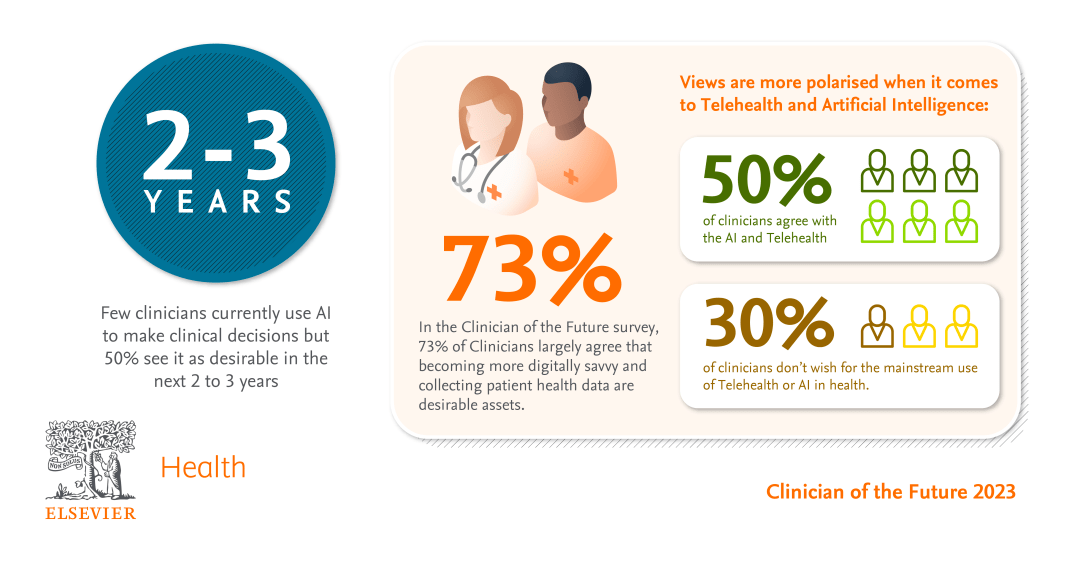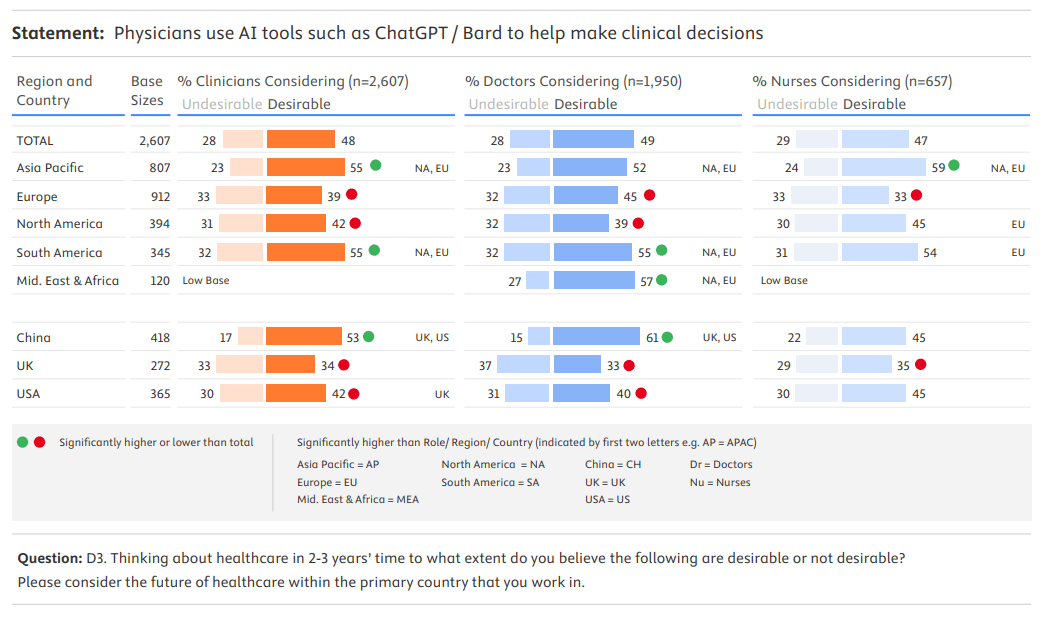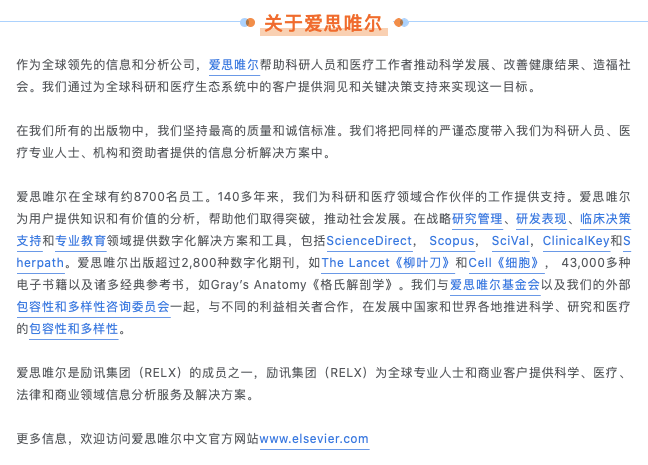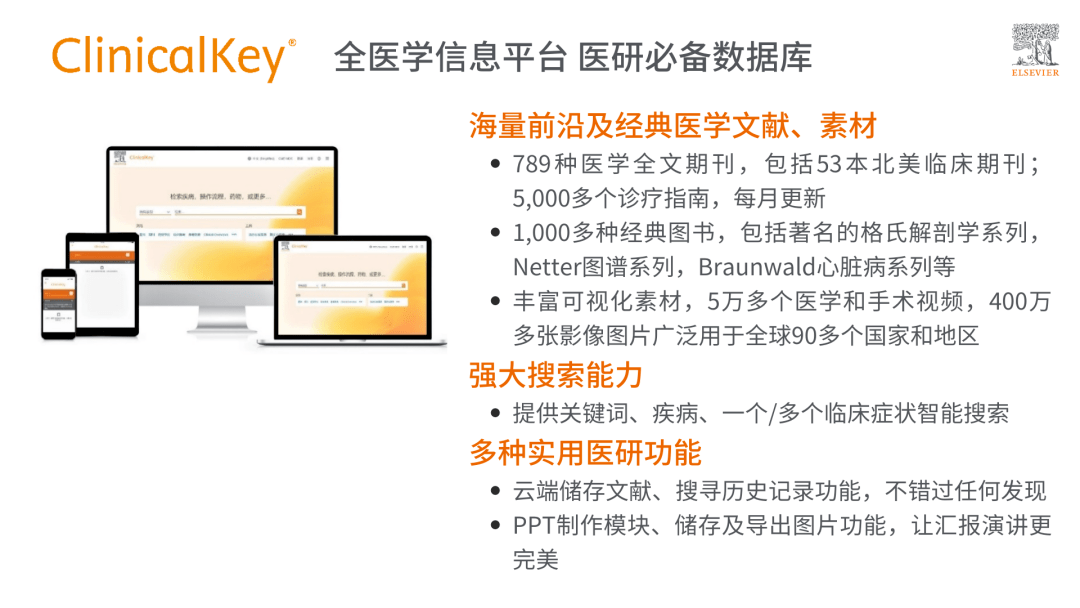

Elsevier, the world's leading information analysis company, officially released "Future Doctor White Paper (2023)" , aiming to gain insights into the latest trends in the evolution of the global medical and health ecosystem, and to explore the potential of generative artificial intelligence products and In the context of the rapid rise of platforms, explore the attitudes of global medical staff towards new opportunities and challenges in the medical and health field. The report found that nearly half of medical staff expect to use innovative technologies to support clinical decision-making in the future, further affirming the need to promote changes in medical and health technology.

Elsevier will release the "Future Doctor White Paper" for the first time in 2022, revealing three major trends in global medical development: the deep integration of digital technology and medical methods, the overall improvement of patients' health literacy, and the impact of diversified medical scenarios on the capabilities of medical staff Present new challenges. The "Future Doctors White Paper (2023)" released a year later brings together the views of nearly 3,000 medical staff around the world. While continuing to focus on the path of change in the medical industry, it also introduces a new perspective - namely Generative Artificial Intelligence The role that intelligent technology will play in the future global medical and health field.
Like the clinical medical staff who participated in the survey in 2022, the interviewees of the "Future Doctors White Paper (2023)" generally feel deeply that the global medical and health system is facing a severe resource shortage problem, and are concerned about the super The heavy workload of diagnosis and treatment makes me feel stressed. Healthcare workers across Europe and North America generally agree that staff shortages of doctors and nurses remain urgent. The "Future Doctors White Paper (2023)" shows that 54% of global respondents regard the shortage of nurses as the primary problem. At the same time, 45% of the respondents said that the shortage of doctors also needs to be solved urgently. This result further reveals that in order to overcome the shortage of clinical medical care, it is urgent to find innovative solutions such as generative artificial intelligence; on the other hand, provide more solutions that can improve efficiency and expand clinical practice. Training opportunities will help strengthen clinical preparation and provide medical talents to the frontline of clinical diagnosis and treatment, which are in high demand.
Jan Herzhoff, President of Elsevier’s Medical Division, said: “The health care system is facing endless challenges. Only by listening to the demands and voices of medical staff around the world can we understand how to maximize to effectively support medical staff and benefit patients. In this process, the combination of trustworthy medical content and innovative technology, especially the use of generative artificial intelligence, can reduce the work pressure of clinicians and free up their time and energy to better serve patients. There is huge energy in humanistic care.”
The "Future Doctors White Paper (2023)" also pointed out that most clinicians believe that emerging technologies can make patient care more efficient and be conducive to the training of future medical staff. The report shows:
According to the survey, 73% of doctors said they agreed that they should master skills related to the application of digital medical technology in the next 2 to 3 years. Doctors interviewed generally believe that it is necessary for them to become experts in the use of digital medical technology

Although only 11% of clinical decisions are currently assisted by generative artificial intelligence tools, 48% of respondents expressed the hope to apply this technology more widely in the next 2 to 3 years
Chinese medical staff have a more optimistic attitude towards artificial intelligence generation technology. According to the survey, 53% of Chinese clinicians believe that artificial intelligence generation technology is expected to be more widely used in medical work in the next 2 to 3 years. This proportion is higher than the 42% in the United States and 34% in the United Kingdom

According to predictions, face-to-face communication between clinicians and patients will decrease by 2028, and 55% of respondents believe that telemedicine may become the main method of routine examinations in 2 to 3 years.
More than half (51%) of clinicians globally strongly agree with the application of generative artificial intelligence tools in medical education in the next 2 to 3 years
In contrast to the global trend, clinicians in the United Kingdom and the United States have reservations about supporting medical students in using artificial intelligence-generated technology. Only 33% and 40% of clinicians in the two countries respectively believe that this suggestion is worthy of recommendation.
As the global medical and health system develops in a more "digital-first" direction, the "Future Doctors White Paper (2023)" shows that medical staff have recognized the role of new technologies such as generative artificial intelligence in promoting global medical and health innovation. Huge potential and understanding that these technologies can play a positive role in improving current and future patient care
Professor Shen Baiyong, Vice President of Ruijin Hospital Affiliated to Shanghai Jiao Tong University School of Medicine said: "Artificial intelligence technology has been widely used to improve patients' medical experience and improve the quality of medical care. I believe that In the future, it can also guide the development of theoretical biology, play the role of 'intelligent doctor', and provide patients with more intelligent diagnosis and treatment services."


The above is the detailed content of 'Future Doctor White Paper (2023)' released: The widespread clinical application of generative AI is believed to only take 2-3 years. For more information, please follow other related articles on the PHP Chinese website!




